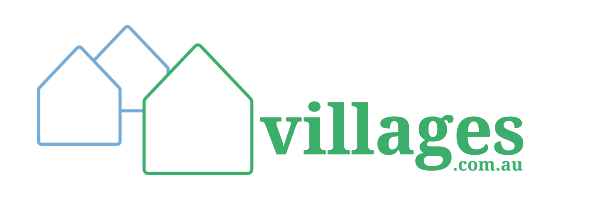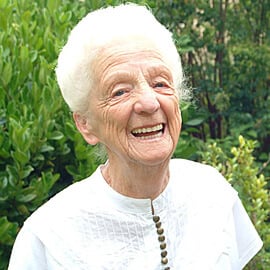Before you sell up the family home to help fund your retirement, here's a heads up on how you can get the best possible price.
For many people, their homes - however modest - are their castles. It's not the bricks and mortar that's important, it's the memories. The decision to sell the family home often brings out our nostalgic streak, which can cloud the ability to think rationally at a time when we most need a clear head. For retirees, a wrong move could prove costly and be the difference between being able to afford to buy into the retirement village of their choice or settle for something less.
The first step in paving the way for the stress-free sale of your home is surrounding yourself with people you can trust. According to buyers' agent and top-selling author Patrick Bright, of EPS Property Search, it may not be who you think. "Everyone's an expert when it comes to real estate. Immediate family members are often the worst people to take advice from. Unfortunately, I have seen many children look out for their own interests ahead of their parents," says Patrick. "I suggest you seek advice from an independent source like a long-term family friend, accountant or solicitor. It should be someone who has known you for a significant period of time that does not stand to benefit in any way from your estate and can look at your situation objectively."
If you feel comfortable that selling the family home is the best way forward for you, Patrick advises you take your time, do your research and familiarise yourself with the process involved, which will generally start by choosing a selling agent. "Selecting a good selling agent is an absolute must. What you need is an experienced, knowledgeable, trustworthy and committed professional. You also need someone that you can get on well with so that you can establish a good relationship throughout the process to help reduce any stress," says Patrick.
Here are a few tips from Patrick to help you employ the best agent for the job
1. Be an after hours mystery shopper
"Ring up all the local selling agents' offices after hours and leave a message telling them that you're looking for a property to BUY and see how quickly they return your call. This process will give you an indication of their response rate. I would expect a call back within 24 to 48 hours as the worst case. If you don't get a call back within 48 hours you have to ask yourself what type of service they will provide to any prospective buyers who are inquiring about your home."
2. Shortlist the top four offices/agents
"Once you have narrowed down the list to agents you know are responsive to buyer's enquiries, it's time to narrow it down to a shortlist of no more than four. Firstly, I would have a look at their websites to check it presented professionally. Today's buyers use the web, but they want quick searches, not a clunky search. Once again, send an email enquiry (or get a friend to do it for you) to gauge their response time. Make sure they are open reasonable hours depending on their location. For example, if the industry norm in your area is for selling agents to have their offices open seven days a week, discount any agents who are only open Monday to Friday. Now it's time to take a drive around your suburb. Take notice of the agents who have sign boards up with a sold sticker across them. It's one thing to win the listing of a property - it's another to actually achieve a sale."
3. The best agent for the job is the number one agent
Once you have your shortlist in place, it's time to arrange interviews. I recommend you ring up the general number and say, "I'd like to speak to your number one salesperson in your office." Once you get them on the phone, ask them if they would like to come over and tell you what your home is worth. The interview process should only take about half-an-hour. Make sure you have a list of questions to ask them such as:
- What is your perception of the market right now in general?
- What's the housing market like in this suburb?
- How long on average is it taking to sell well-priced properties at the moment?
- What areas do you cover?
- How much is my home worth?
- What evidence do you have to support your valuation of my home?
- How do you go about determining an asking price?
- Do I need to do anything to improve my home before it goes on the market?
- What similar homes have you sold recently?
- How do they compare with my home?
- How long will it take to sell?
- How do you find buyers?
After each interview, rate each agent on:
- Punctuality
- Appearance
- Prompt follow-up
- Professionalism
- Flexibility
- Did they ask questions about your needs?
- Did they appear genuinely interested in helping you sell?"
The process of determining a fair market value for your home can be difficult. You have two options - undertaking a market analysis yourself to track selling prices in your area or organise an independent valuer (which will cost around $300 to 500) and compare their feedback with the value estimates you've received from selling agents. If you average the results and take off 10 percent, you should be in the ballpark.
In Patrick's experience, most people think their property is worth more than it is. "The reality is your property will be valued based on the recent sales results of similar properties in your area unless you have a unique feature that sets it apart from the others. By a unique feature, I mean something like a great position, a spectacular view or outstanding architecture. Small things that are unique to your property usually don't have much impact on the value," says Patrick.
In an effort to fetch the best price for your property it's worth weighing up whether to spend money on a makeover of the place. You can ask each selling agent you interview. "In my opinion, it is only worth going through the hassle of a cosmetic makeover before sale if it will return you $1.50 or more in value for every dollar you spend," says Patrick. "There's simply no point in adding stress and work to what's already an emotional process if you are not going to receive a significant benefit."
Patrick Bright is a real estate author and an exclusive buyers' agent. He has just released his third book in the ‘Insider's Guide' series titled The Insider's Guide to Saving Thousands at Auction. It's available at good book stores or you can purchase a copy from www.epspropertysearch.com.au or by calling 1300 SEARCH.
Happy or heartburn? Eight tips for selling your home without losing sleep or money
- Appoint a licensed conveyancer / solicitor who will drop everything on the day you need to ‘exchange' your sale contracts.
- Don't enter into a contract to purchase before you have entered into a contract to sell your home. If you want to move directly from one home to another, it's important the contracts both have the same completion dates, and you are able to use the money from your sale to purchase your new home
- If a deposit is required for your purchase, make sure your sale contract has a ‘release of deposit' clause in it. This will allow you to use the deposit paid to the agent on the sale of your home to pay the deposit on your purchase.
- If you are selling your home and buying another, it is best to use the same licensed conveyancer / solicitor so they can manage the money coming from your sale to pay for your new home.
- If you are purchasing a villa in a retirement village, make sure you appoint a licensed conveyancer / solicitor who understands retirement village legislation to protect your rights, whether you are entering into a lease, licence agreement or strata unit retirement village.
- Most retirement village contracts, will allow you to make the contract subject to the sale of your current home so if you don't sell your home, or it is taking longer than expected, you are not bound by your purchase.
- Find out how selling your home may affect your pension. If you get social security payments you can phone Centrelink on 13 23 00 and for people on Veterans' Affairs income support pensions you can phone Veterans' Affairs on 133 254 (for metropolitan callers or 1800 555 254 (free-call for regional callers).
- If you are selling your home you will not pay any capital gains tax. However, if you are selling an investment property you should contact your financial advisor to find out what capital gains you will pay.
Julie Lobascher, from Middle Harbour Conveyancing, is a conveyancing expert who specialises in helping people who may not have a regular solicitor. Ph: (02) 9924 7496 or visit our site.






